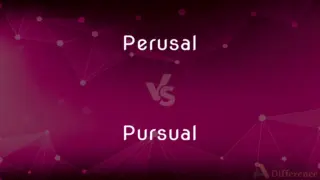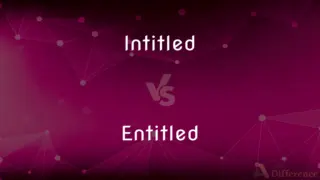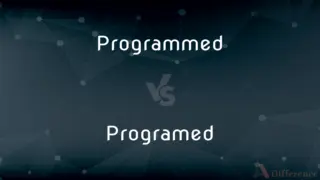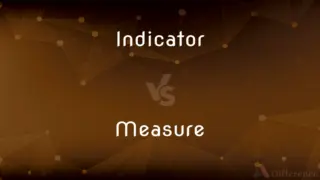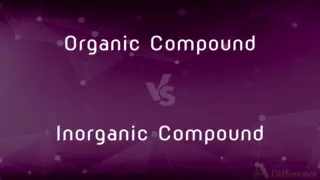Soul vs. Psyche — What's the Difference?
By Maham Liaqat & Urooj Arif — Updated on April 25, 2024
The soul is often viewed as the spiritual, eternal essence of a being, central in many religious beliefs, while the psyche represents the human mind or personality, crucial in psychological contexts.
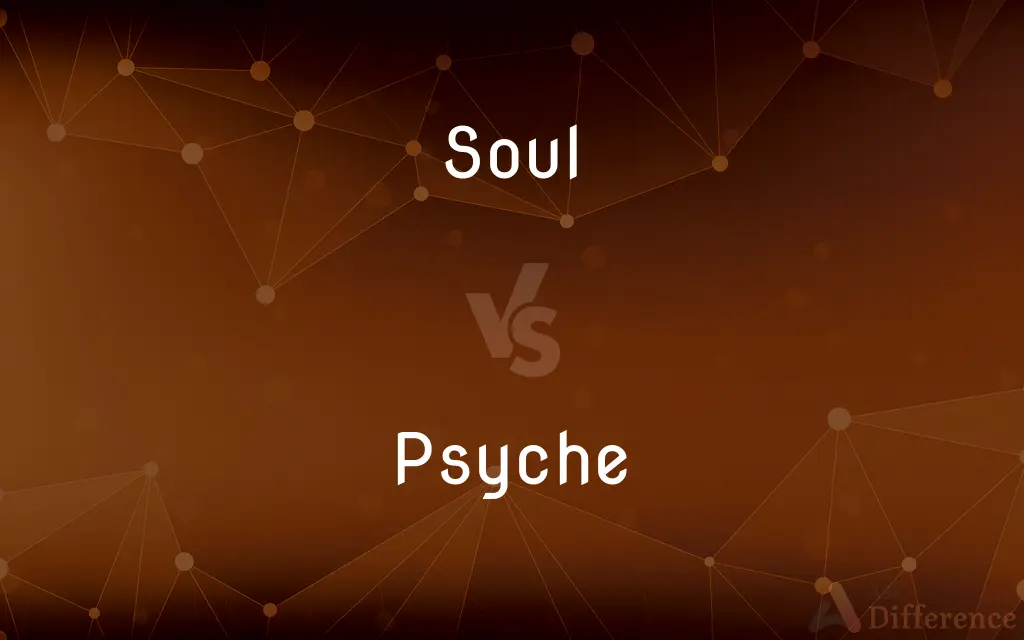
Difference Between Soul and Psyche
Table of Contents
ADVERTISEMENT
Key Differences
The concept of the soul is deeply embedded in religious and philosophical contexts, often seen as an immortal essence that transcends physical life. On the other hand, the psyche is a term used primarily in psychology to denote the mind and encompasses mental and emotional processes and the subconscious.
In religious traditions, the soul is considered the bearer of morality and is often accountable for the actions in one's life, influencing doctrines of afterlife and reincarnation. Whereas the psyche is studied from a scientific perspective, focusing on understanding cognitive functions, emotions, personality, and behavioral patterns.
The soul is typically described as unchanging and eternal, an essence that does not evolve over time but maintains a consistent state throughout one's existence and beyond. In contrast, the psyche is seen as dynamic and developmental, evolving through personal experiences and interactions throughout a person's life.
Many cultures and belief systems posit that the soul has a direct connection with the divine or a higher power, playing a critical role in spiritual and religious experiences. Conversely, the psyche is understood through the lenses of psychological theories and principles, often explored through therapeutic and empirical methodologies.
While the soul is sometimes considered the core of one's spiritual identity, it is separate from the physical body and intellectual capabilities. On the other hand, the psyche is inherently linked to the brain and is often discussed in relation to mental health and psychological well-being.
ADVERTISEMENT
Comparison Chart
Primary Context
Religious, philosophical
Psychological, scientific
Nature
Eternal, unchanging
Dynamic, developmental
Focus
Spiritual essence, morality
Mind, emotions, subconscious
Connection
Divine, spiritual realms
Brain, cognitive functions
Method of Study
Theological discourse, philosophical analysis
Empirical research, therapy
Compare with Definitions
Soul
The unchanging spiritual core of a person.
Many believe the soul continues its journey after physical death.
Psyche
Defines character and behavioral tendencies.
Her vibrant psyche made her popular among peers.
Soul
Integral to concepts of afterlife and salvation.
Her religious beliefs affirm the soul's immortality.
Psyche
Subject of therapy and psychological theories.
Freud contributed extensively to the understanding of the psyche.
Soul
The aspect of a person connected to the divine.
Meditation is said to help one connect with their soul.
Psyche
Part of the mind not fully accessible but influential.
Dreams are a window into the subconscious psyche.
Soul
Guides ethical behavior and decisions.
His soul was troubled by the ethical dilemma he faced.
Psyche
Encompasses mental and emotional processes.
The trauma had a lasting impact on his psyche.
Soul
Explored in terms of existence and essence.
Philosophers debate whether the soul is distinct from the mind.
Psyche
Related to thinking and problem-solving.
Cognitive therapies aim to realign faulty thought processes in the psyche.
Soul
In many religious, philosophical, and mythological traditions, the soul is the incorporeal essence of a living being. Soul or psyche (Ancient Greek: ψυχή psykhḗ, of ψύχειν psýkhein, "to breathe", cf.
Psyche
A Hellenistic personification of the soul as female, or sometimes as a butterfly. The allegory of Psyche's love for Cupid is told in The Golden Ass by Apuleius.
Soul
The spiritual or immaterial part of a human being or animal, regarded as immortal.
Psyche
Variant spelling of psych
Soul
Emotional or intellectual energy or intensity, especially as revealed in a work of art or an artistic performance
Their interpretation lacked soul
Psyche
Variant spelling of psych
Soul
The essence or embodiment of a specified quality
He was the soul of discretion
Brevity is the soul of wit
Psyche
Variant of psych.
Soul
In Aristotelian philosophy, an animating or vital principle inherent in living things and endowing them in various degrees with the potential to grow and reproduce, to move and respond to stimuli (as in the case of animals), and to think rationally (as in the case of humans).
Psyche
A young woman who loved and was loved by Eros and was united with him after Aphrodite's jealousy was overcome. She subsequently became the personification of the soul.
Soul
A human
“the homes of some nine hundred souls” (Garrison Keillor).
Psyche
The human soul, mind, or spirit.
Soul
A person considered as the embodiment of an intangible quality; a personification
I am the very soul of discretion.
Psyche
(chiefly psychology) The human mind as the central force in thought, emotion, and behavior of an individual.
Soul
A person's emotional or moral nature
“An actor is ... often a soul which wishes to reveal itself to the world but dare not” (Alec Guinness).
Psyche
A small white butterfly, Leptosia nina, family Pieridae, of Asia and Australasia.
Soul
The central or integral part; the vital core
“It saddens me that this network ... may lose its soul, which is after all the quest for news” (Marvin Kalb).
Psyche
Abbreviation of psychology
Soul
A sense of emotional strength or spiritual vitality held to derive from black and especially African American cultural experience, expressed in areas such as language, social customs, religion, and music.
Psyche
(colloquial) psych
Soul
Strong, deeply felt emotion conveyed by a speaker, performer, or artist
A performance that had a lot of soul.
Psyche
(transitive) To put (someone) into a required psychological frame of mind.
Soul
Soul music.
Psyche
(transitive) To intimidate (someone) emotionally using psychology.
Soul
The spirit or essence of anything.
Psyche
To treat (someone) using psychoanalysis.
Soul
Life, energy, vigor.
Psyche
A lovely maiden, daughter of a king and mistress of Eros, or Cupid. She is regarded as the personification of the soul.
Soul
(music) Soul music.
Psyche
The soul; the vital principle; the mind.
Soul
A person, especially as one among many.
Psyche
A cheval glass.
Soul
An individual life.
Fifty souls were lost when the ship sank.
Psyche
That which is responsible for one's thoughts and feelings; the seat of the faculty of reason;
His mind wandered
I couldn't get his words out of my head
Soul
(math) A kind of submanifold involved in the soul theorem of Riemannian geometry.
Psyche
The immaterial part of a person; the actuating cause of an individual life
Soul
To endow with a soul or mind.
Psyche
(Greek mythology) a beautiful princess loved by Cupid who visited her at night and told her she must not try to see him; became the personification of the soul
Soul
To beg on All Soul's Day.
Soul
(obsolete) To afford suitable sustenance.
Soul
Sole.
Soul
By or for African-Americans, or characteristic of their culture; as, soul music; soul newspapers; soul food.
Soul
To afford suitable sustenance.
Soul
To indue with a soul; to furnish with a soul or mind.
Soul
The spiritual, rational, and immortal part in man; that part of man which enables him to think, and which renders him a subject of moral government; - sometimes, in distinction from the higher nature, or spirit, of man, the so-called animal soul, that is, the seat of life, the sensitive affections and phantasy, exclusive of the voluntary and rational powers; - sometimes, in distinction from the mind, the moral and emotional part of man's nature, the seat of feeling, in distinction from intellect; - sometimes, the intellect only; the understanding; the seat of knowledge, as distinguished from feeling. In a more general sense, "an animating, separable, surviving entity, the vehicle of individual personal existence."
The eyes of our souls only then begin to see, when our bodily eyes are closing.
Soul
The seat of real life or vitality; the source of action; the animating or essential part.
Thou sun, of this great world both eye and soul.
Soul
The leader; the inspirer; the moving spirit; the heart; as, the soul of an enterprise; an able general is the soul of his army.
He is the very soul of bounty!
Soul
Energy; courage; spirit; fervor; affection, or any other noble manifestation of the heart or moral nature; inherent power or goodness.
That he wants algebra he must confess;But not a soul to give our arms success.
Soul
A human being; a person; - a familiar appellation, usually with a qualifying epithet; as, poor soul.
As cold waters to a thirsty soul, so is good news from a far country.
God forbid so many simple soulsShould perish by the sword!
Now mistress Gilpin (careful soul).
Soul
A pure or disembodied spirit.
That to his only Son . . . every soul in heavenShall bend the knee.
Soul
A perceived shared community and awareness among African-Americans.
Soul
Soul music.
Soul
The immaterial part of a person; the actuating cause of an individual life
Soul
A human being;
There was too much for one person to do
Soul
Deep feeling or emotion
Soul
The human embodiment of something;
The soul of honor
Soul
A secular form of gospel that was a major Black musical genre in the 1960s and 1970s;
Soul was politically significant during the Civil Rights movement
Common Curiosities
What psychological theories are primarily concerned with the psyche?
Theories like Freud's psychoanalytic theory and Jung's analytical psychology are centered on understanding the psyche.
Is the soul relevant in modern psychology?
Typically, modern psychology focuses on the psyche and tends to avoid spiritual or religious interpretations like the soul.
How do cultures differ in their understanding of the soul?
Different cultures have varied beliefs about the soul's nature, purpose, and journey, often tied to religious and spiritual traditions.
What role does the psyche play in therapy?
The psyche is the main focus in therapy, aiming to resolve conflicts, heal trauma, and improve mental health.
What is the difference between the soul and the psyche?
The soul is considered a spiritual, eternal essence, while the psyche refers to the human mind and emotional processes.
Can the psyche change over time?
Yes, the psyche is dynamic and changes in response to experiences, growth, and therapy.
Is the concept of the soul scientifically testable?
The soul is not typically subject to scientific testing due to its metaphysical and spiritual implications.
What implications does the soul have for ethical and moral discussions?
Beliefs about the soul can influence views on right and wrong, often guiding moral behavior and ethical decision-making.
Can the concepts of soul and psyche overlap in any way?
Yes, in discussions about human nature and behavior, both concepts can intersect, particularly in contexts exploring the depth of human consciousness.
How does culture influence the understanding of the psyche?
Cultural factors shape how mental processes and emotional responses are perceived and managed.
How do religious views on the soul impact personal beliefs?
Religious teachings about the soul often shape individuals' views on ethics, morality, and the afterlife.
How does understanding the psyche help in personal development?
Insights into the psyche can lead to better self-awareness, emotional regulation, and personal growth.
What methods are used to study the psyche?
Psychological assessments, clinical observations, and empirical research are key methods.
What are common misconceptions about the soul and psyche?
A common misconception is that they are interchangeable; they actually refer to different aspects of human existence, spiritual vs. mental.
Do all religions believe in the concept of the soul?
Most, but not all, religions have some concept of the soul or a similar spiritual element.
Share Your Discovery
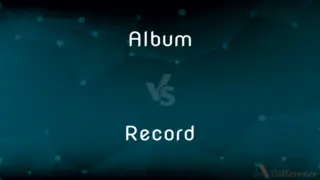
Previous Comparison
Album vs. Record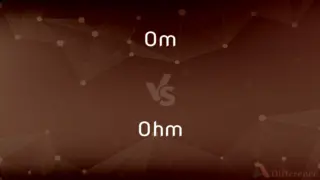
Next Comparison
Om vs. OhmAuthor Spotlight
Written by
Maham LiaqatCo-written by
Urooj ArifUrooj is a skilled content writer at Ask Difference, known for her exceptional ability to simplify complex topics into engaging and informative content. With a passion for research and a flair for clear, concise writing, she consistently delivers articles that resonate with our diverse audience.







